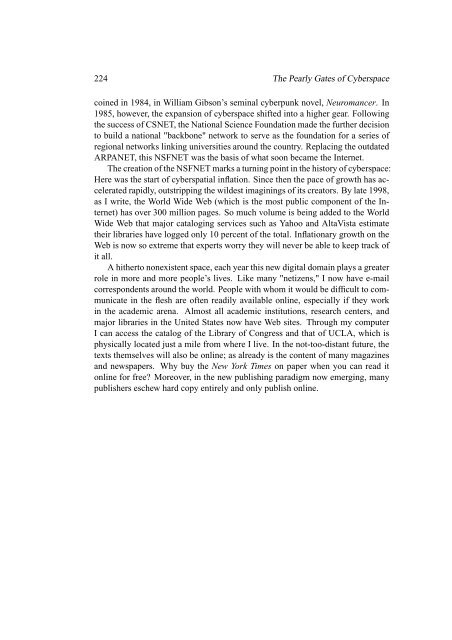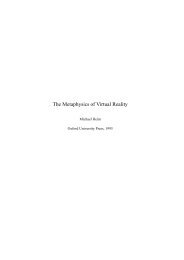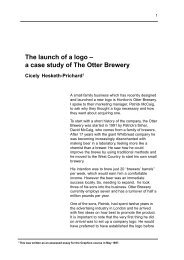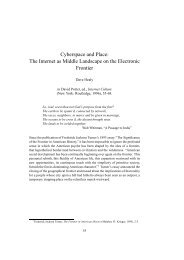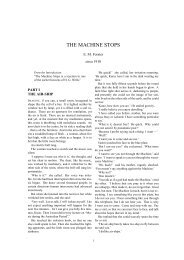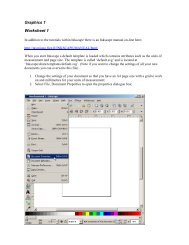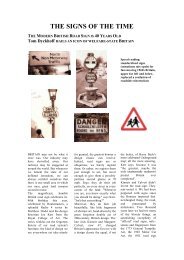The Pearly Gates of Cyberspace: - University of Exeter
The Pearly Gates of Cyberspace: - University of Exeter
The Pearly Gates of Cyberspace: - University of Exeter
You also want an ePaper? Increase the reach of your titles
YUMPU automatically turns print PDFs into web optimized ePapers that Google loves.
224 <strong>The</strong> <strong>Pearly</strong> <strong>Gates</strong> <strong>of</strong> <strong>Cyberspace</strong><br />
coined in 1984, in William Gibson’s seminal cyberpunk novel, Neuromancer. In<br />
1985, however, the expansion <strong>of</strong> cyberspace shifted into a higher gear. Following<br />
the success <strong>of</strong> CSNET, the National Science Foundation made the further decision<br />
to build a national "backbone" network to serve as the foundation for a series <strong>of</strong><br />
regional networks linking universities around the country. Replacing the outdated<br />
ARPANET, this NSFNET was the basis <strong>of</strong> what soon became the Internet.<br />
<strong>The</strong> creation <strong>of</strong> the NSFNET marks a turning point in the history <strong>of</strong> cyberspace:<br />
Here was the start <strong>of</strong> cyberspatial inflation. Since then the pace <strong>of</strong> growth has accelerated<br />
rapidly, outstripping the wildest imaginings <strong>of</strong> its creators. By late 1998,<br />
as I write, the World Wide Web (which is the most public component <strong>of</strong> the Internet)<br />
has over 300 million pages. So much volume is being added to the World<br />
Wide Web that major cataloging services such as Yahoo and AltaVista estimate<br />
their libraries have logged only 10 percent <strong>of</strong> the total. Inflationary growth on the<br />
Web is now so extreme that experts worry they will never be able to keep track <strong>of</strong><br />
it all.<br />
A hitherto nonexistent space, each year this new digital domain plays a greater<br />
role in more and more people’s lives. Like many "netizens," I now have e-mail<br />
correspondents around the world. People with whom it would be difficult to communicate<br />
in the flesh are <strong>of</strong>ten readily available online, especially if they work<br />
in the academic arena. Almost all academic institutions, research centers, and<br />
major libraries in the United States now have Web sites. Through my computer<br />
I can access the catalog <strong>of</strong> the Library <strong>of</strong> Congress and that <strong>of</strong> UCLA, which is<br />
physically located just a mile from where I live. In the not-too-distant future, the<br />
texts themselves will also be online; as already is the content <strong>of</strong> many magazines<br />
and newspapers. Why buy the New York Times on paper when you can read it<br />
online for free? Moreover, in the new publishing paradigm now emerging, many<br />
publishers eschew hard copy entirely and only publish online.


